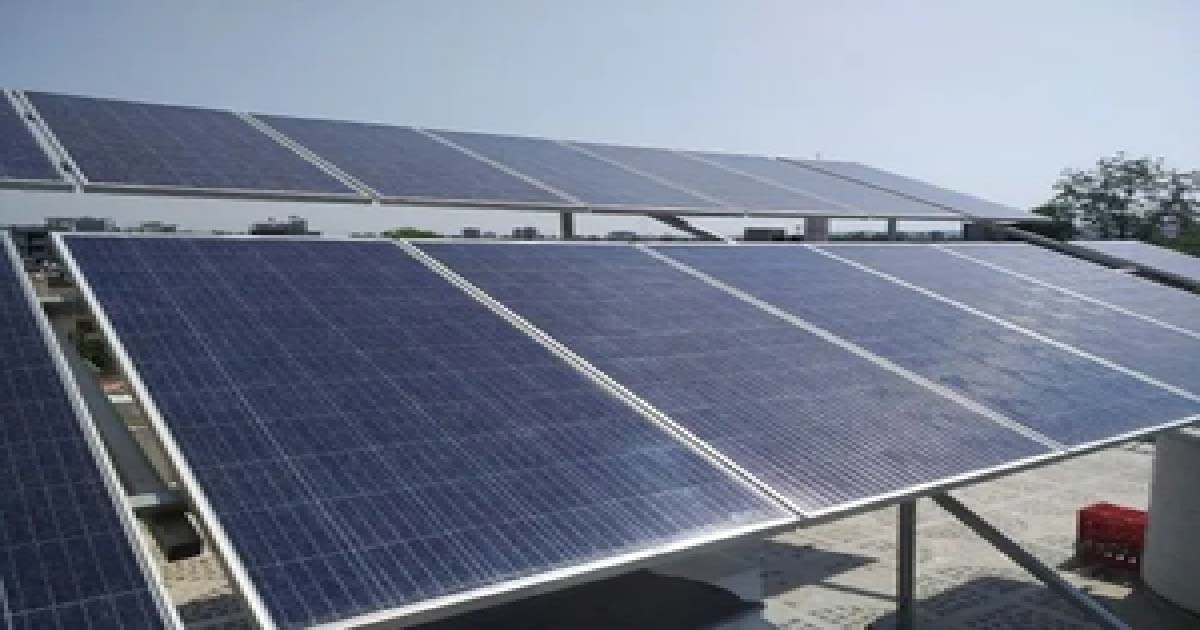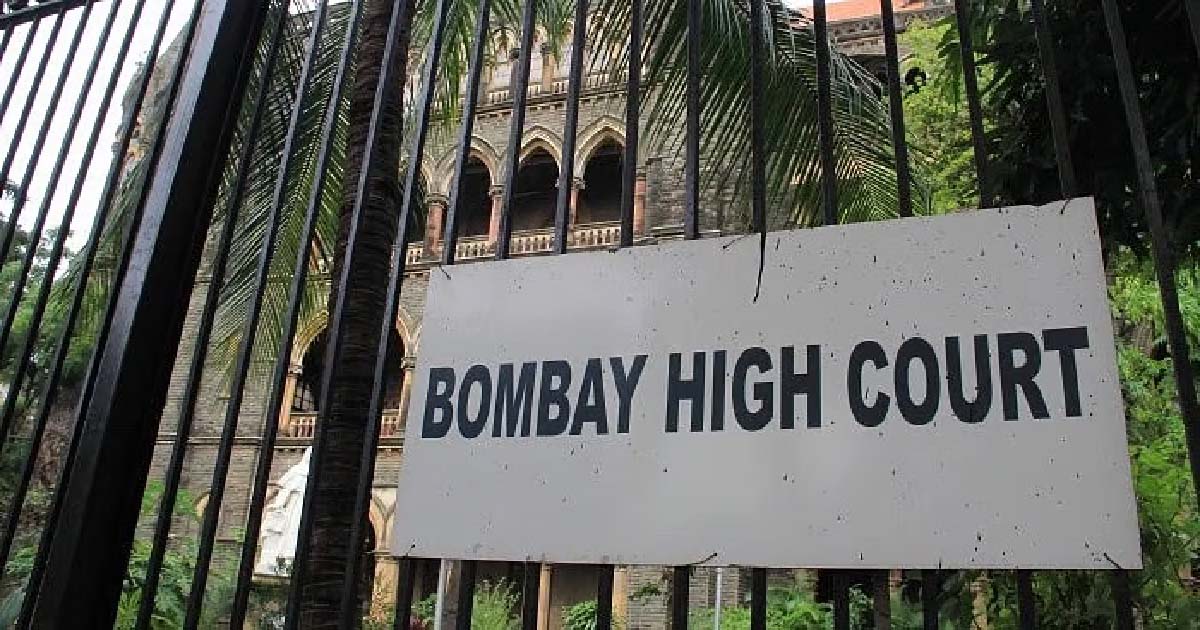Business
India’s rooftop solar energy capacity to reach 25-30 GW by FY27

New Delhi, April 15: India’s rooftop solar energy capacity is projected to surge from 17 GW to an estimated 25–30 GW between FY25 and FY27, a report showed on Tuesday.
The expansion is driven by India’s broader energy transition goals, with solar power emerging as a central pillar in the country’s clean energy roadmap.
With a total renewable capacity of 220 GW as of FY25 and a national target of 300 GW solar capacity by 2030, rooftop solar, particularly in the commercial and industrial (C&I) segment, is expected to play a pivotal role in this growth, according to the report by CareEdge Ratings.
As of FY25, India’s rooftop solar capacity stood at 17.02 GW, and increasing awareness among businesses about reducing operating costs and meeting sustainability targets is fuelling adoption.
Government incentives, reducing technology costs, and policy support such as net metering and PLI schemes are expected to further accelerate deployment.
Overall, the FY27 projection underscores a transformative phase for India’s solar industry, setting the foundation for sustained expansion through the end of the decade.
“Rooftop solar installations in India have gained momentum. With the growing C&I demand backed by an improving policy ecosystem, we expect the market to reach nearly 25-30 GW over the next two years,” said Tanvi Shah, Director at CareEdge Advisory and Research.
The PM Surya Ghar Muft Bijli Yojana, aimed at installing rooftop solar in 1 crore households with subsidies up to Rs 78,000, is expected to provide strong support to residential adoption. The scheme not only supports low and middle-income households by reducing their electricity bills but also aims to create nearly 17 lakh jobs, boosting the solar value chain.
Recently, rooftop solar initiative has achieved a historic milestone with 10 lakh installations as of March 10, 2025.
Gujarat remains a leader due to its progressive “Surya Gujarat” programme, while Maharashtra has seen strong commercial and industrial demand, especially from MSMEs and urban commercial hubs.
“The rooftop solar segment which currently holds around 20 per cent share of India’s solar mix is gaining importance due to its distributed nature and direct consumer engagement. This is despite utility-scale solar being the dominant contributor,” said the report.
The growth of rooftop solar market in India has witnessed accelerated growth in the recent years. With strong policy backing, falling costs, and growing consumer interest, it is set to emerge as a key pillar in India’s renewable energy transition, said the report.
Business
Nescafé Premix Qualifies As ‘Instant Coffee’, Attracts Lower 8 Per Cent Sales Tax: Bombay HC

Mumbai: In a significant ruling on product classification under the Bombay Sales Tax Act, 1959, the Bombay High Court has held that Nescafé Premix must be taxed at 8% as “coffee / instant coffee,” and not at the higher rate of 16% applicable to general beverage powders.
A bench of Justices M. S. Sonak and Advait Sethna reiterated the cardinal principle that specific tax entries must prevail over general ones. Applying the common parlance test, the court concluded that Nescafé Premix, as marketed and consumed, had created a clear perception of “instant coffee”.
The case arose from a dispute between Nestlé India Ltd. and the Sales Tax Department regarding whether Nescafé Premix — containing 8.5% soluble coffee powder, 54% sucrose, 37% partially skimmed milk powder and 0.5% maltodextrin — should be classified under Schedule Entry C-II-3 (8%) or Entry C-II-18(2) (16%).
The Commissioner of Sales Tax had earlier ruled in 1998 that the product fell under the higher-taxed general entry for powders used in non-alcoholic beverages, emphasising that the coffee content was “minuscule 8.5%”.
The Maharashtra Sales Tax Tribunal reversed this decision in 2001, holding that ingredient percentage was not decisive — relying on Supreme Court precedent that even small quantities, like salt in food, do not alter the essential character of the final product.
Upholding the Tribunal’s order, the HC stressed that the product’s actual use and consumer understanding were crucial. “Ultimately, in all such matters, we must go by the common parlance test,” the bench said.
It noted that the premix was expressly marketed as Nescafé Premix and used to dispense Nescafé from vending machines simply by adding hot water. “The resultant product, in common parlance, was nothing but Nescafé,” the Court observed.
Rejecting the Department’s argument that low coffee content disqualified it from being considered instant coffee, the Court agreed with the Tribunal that removing coffee powder altogether would fundamentally change the product’s identity — demonstrating that the coffee component, though proportionally small, was determinative of classification.
The bench also emphasised that Entry C-II-3, covering “coffee” and “instant coffee”, was a specific entry and therefore prevailed over the general entry for beverage powders under C-II-18(2). “The concept of instant coffee must conform to modern development and modern perceptions,” the Court added.
Business
Indian stock market ends in bullish tone after RBI rate cut

Mumbai, Dec 6: Indian equity benchmarks made marginal losses after hitting record highs and three weeks of consecutive gains due to profit booking. However, the market ended the week in a bullish tone after the Reserve Bank of India (RBI) delivered a 25 bps rate cut that lifted investor sentiment.
Benchmark indices Nifty and Sensex dipped 0.37 and 0.27 per cent during the week to close at 26,186 and 85,712, respectively.
Early optimism driven by strong Q2 GDP print and robust auto sales was overshadowed by persistent FII outflows, sharp rupee depreciation, and uncertainty over trade negotiations.
Broader indices underperformed, with the Nifty Midcap100 and Smallcap100 down 0.73 per cent and 1.80 per cent, respectively in a week.
Sentiment reversed on Friday after the RBI surprised markets with a 25-bps rate cut, supported by lower inflation forecasts and liquidity measures.
Gains during the week were led by auto, IT due to festive demand and favourable currency tailwinds. Banks, Finances, consumer durables, power, chemicals and oil & gas lagged.
As long as Nifty sustains above the 26,050–26,000 band, the bullish structure remains valid. Immediate resistance now lies at 26,350–26,500 zone and a break below 26,000 could lead to profit booking, said market experts.
With India’s economic growth remaining resilient despite tariff pressures and global headwinds, the Indian equity market is well-positioned to benefit if global fund flows begin to rotate back into emerging markets, market watchers said.
Investors are keen on cues from the US Federal Reserve’s monetary policy decision next week. Markets have already begun pricing in a 25 bps rate cut, supported by dovish commentary from several Fed officials and recent data pointing to softening labour market conditions.
Analysts said that shift in US Fed’s policy stance could sway currency movements and materially influence foreign portfolio investor flows into emerging markets including India.
Business
IndiGo Crisis: 75-Yr-Old Woman Waits Hours For Luggage Without Medicines At Mumbai T2 Airport

Mumbai, Dec 05: When IndiGo’s nationwide operational meltdown began disrupting flights earlier this week, thousands of passengers were caught in chaos across the country. Among them was a 75-year-old woman whose ordeal at Mumbai’s Terminal 2 gained attention after her daughter shared a distressed post on X. Thankfully, the woman has now reached home safely, but her experience reflects the scale of frustration travellers are facing.
In her post on X, Punita Toraskar wrote that her elderly mother had been waiting at T2 since noon, and even by 4:42 pm, she still hadn’t received her luggage. The situation was more alarming because the 75-year-old needed to take her medicines but was stuck waiting on an empty stomach, stranded amid the airport chaos.
Toraskar’s post quickly resonated with passengers across India who have been struggling with severe delays, cancellations, and a complete breakdown of communication from India’s largest airline.
IndiGo is currently grappling with one of the biggest operational crises in its history. Nearly 900 flights have been cancelled since Tuesday, triggered by a mix of staff shortages and the airline’s struggle to adapt to stringent new crew duty regulations.
Passengers at major airports — Delhi, Hyderabad, Bengaluru, and Kolkata — are facing hours-long queues, mounting delays, and skyrocketing airfares as alternative flight options shrink. Hotels are filling up, tempers are rising, and social media is flooded with frustration.
IndiGo has issued public apologies and claims it is rebooting its systems and schedules to stabilise operations. But for many travellers like Toraskar’s mother, the damage is already done.
Despite the turmoil, Punita confirmed later that her mother had finally reached home safely, a small relief in a week of aviation chaos.
-

 Crime3 years ago
Crime3 years agoClass 10 student jumps to death in Jaipur
-

 Maharashtra1 year ago
Maharashtra1 year agoMumbai Local Train Update: Central Railway’s New Timetable Comes Into Effect; Check Full List Of Revised Timings & Stations
-

 Maharashtra1 year ago
Maharashtra1 year agoMumbai To Go Toll-Free Tonight! Maharashtra Govt Announces Complete Toll Waiver For Light Motor Vehicles At All 5 Entry Points Of City
-

 Maharashtra1 year ago
Maharashtra1 year agoFalse photo of Imtiaz Jaleel’s rally, exposing the fooling conspiracy
-

 National News1 year ago
National News1 year agoMinistry of Railways rolls out Special Drive 4.0 with focus on digitisation, cleanliness, inclusiveness and grievance redressal
-

 Maharashtra1 year ago
Maharashtra1 year agoMaharashtra Elections 2024: Mumbai Metro & BEST Services Extended Till Midnight On Voting Day
-

 National News1 year ago
National News1 year agoJ&K: 4 Jawans Killed, 28 Injured After Bus Carrying BSF Personnel For Poll Duty Falls Into Gorge In Budgam; Terrifying Visuals Surface
-

 Crime1 year ago
Crime1 year agoBaba Siddique Murder: Mumbai Police Unable To Get Lawrence Bishnoi Custody Due To Home Ministry Order, Says Report












